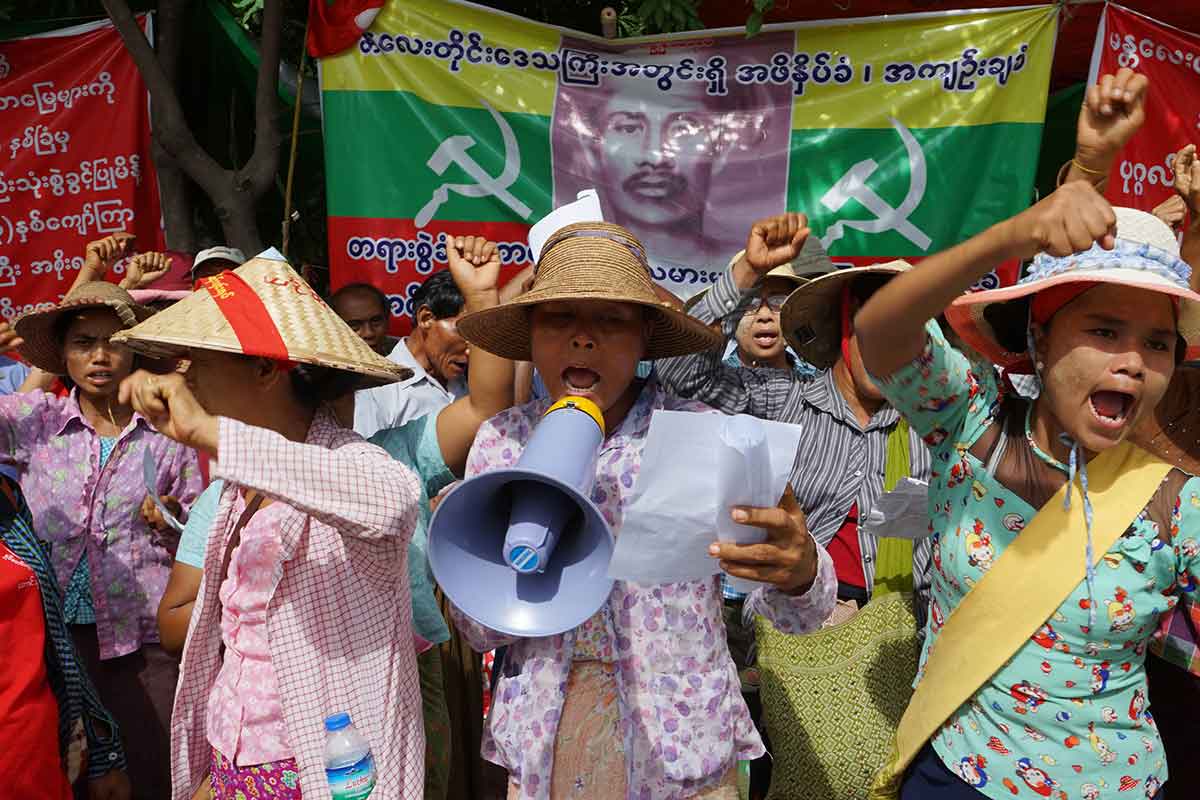When the National League of Defence (NLD) won the general elections in 2015, paving the way for Myanmar’s first non-military president in over half a century, many farmers sensed a renewed hope for the nation. In fact, Aung San Suu Kyi’s pledge to tackle the issue of land grabbing and to protect farmers in the country was one of the reasons for her victory.
However, the Myanmar government has done the opposite. Last September they amended the Vacant, Fallow and Virgin (VFV) Lands Management Law by imposing a two-year sentence on anyone found living on “vacant, fallow, and virgin land" without a permit after 11 March.
The law, which was created in 2012, criminalises millions of farmers who have traditionally worked on the land but do not have permits – and allows for more land seizures by the government, military and private companies. According to estimates, the land covered under the law totals more than 20 million hectares – or 30 percent of Myanmar's land area – and three-quarters of it is home to Myanmar’s ethnic minorities.
Under the military junta, the practice of land confiscation without providing an adequate notice period or proper compensation has been going on for decades. In 2016, a government official, citing the findings of the Farmers Affairs Committee in the Upper House of Parliament, said “as many as two million acres of land across Myanmar could be considered ‘confiscated.’”
Rural communities harmed
The rural poor, which make up 70 percent of Myanmar’s population, have long been dissatisfied with the decades of rampant land seizures by the military junta. With justice still far from being served, many rural folks are still feeling the effects of it.
One of the most devastating effects of land seizure in the country is that it deprives farmers and surrounding rural communities of their livelihood. In rural areas of Myanmar, farming is central to economic survival for families and communities.
Once farmers lose their capability of being able to survive economically, it will have harsh and far-reaching consequences. Many who depend on farming and their land for income would resort to manual labour which does not pay enough to support them.
Interviews by international non-governmental organisation, Human Rights Watch revealed that after their land was confiscated, many parents could not even send their children to school. The children would eventually end up doing child labour as they have to work to help their families make ends meet.
Farmers who dare to resist and protest against the land confiscations face threats and intimidation or even being placed under arrest. In one incident, the Myanmar government charged 96 farmers in Shan State with trespassing and property destruction. In 2016, 72 farmers were convicted, with some being jailed for a month while others received fines. In 2017, A Myanmar land rights activist who challenged illegal land grabs in northern Shan State was beaten to death by a mob.
Justice
Four years since Aung San Suu Kyi took power, the conditions for many farmers remain the same. However, there have been some commendable efforts. The government of Myanmar adopted the National Land Use Policy and formed the National Land Use Council. While the policies formed may not be binding, they could serve as a roadmap for land reform in the country.
In 2016, the government there created the Central Reinvestigation Committee for Confiscated Farmlands and Other Lands (Reinvestigation Committee) to solve land confiscation issues. However, the effectiveness of the committee has been questioned. While some farmers have received compensation or have had their lands returned to them, many farmers are still waiting for a response from the government. Some activists and farmers even claim that corruption runs deep in the committee.
Despite the new government, the powers of the military in Myanmar have not been curbed. In 2017, Amnesty International revealed that Myanmar’s military had seized land and torched Rohingya villages to build military infrastructure.
As Myanmar looks to modernise and transition to a democracy, it needs deep and structural land reforms. It also needs to protect the rights of the rural poor and farmers, the very people that voted the government into power in the first place. Failure to do so would have negative effects on both, the morale of citizens and the economy. The future of Myanmar depends on the political will of the government to deliver on its promise to reform.
This article was first published by The ASEAN Post on 2 August 2018 and has been updated to reflect the latest data.
Related articles:
UN: Myanmar army brutality 'hard to fathom'
